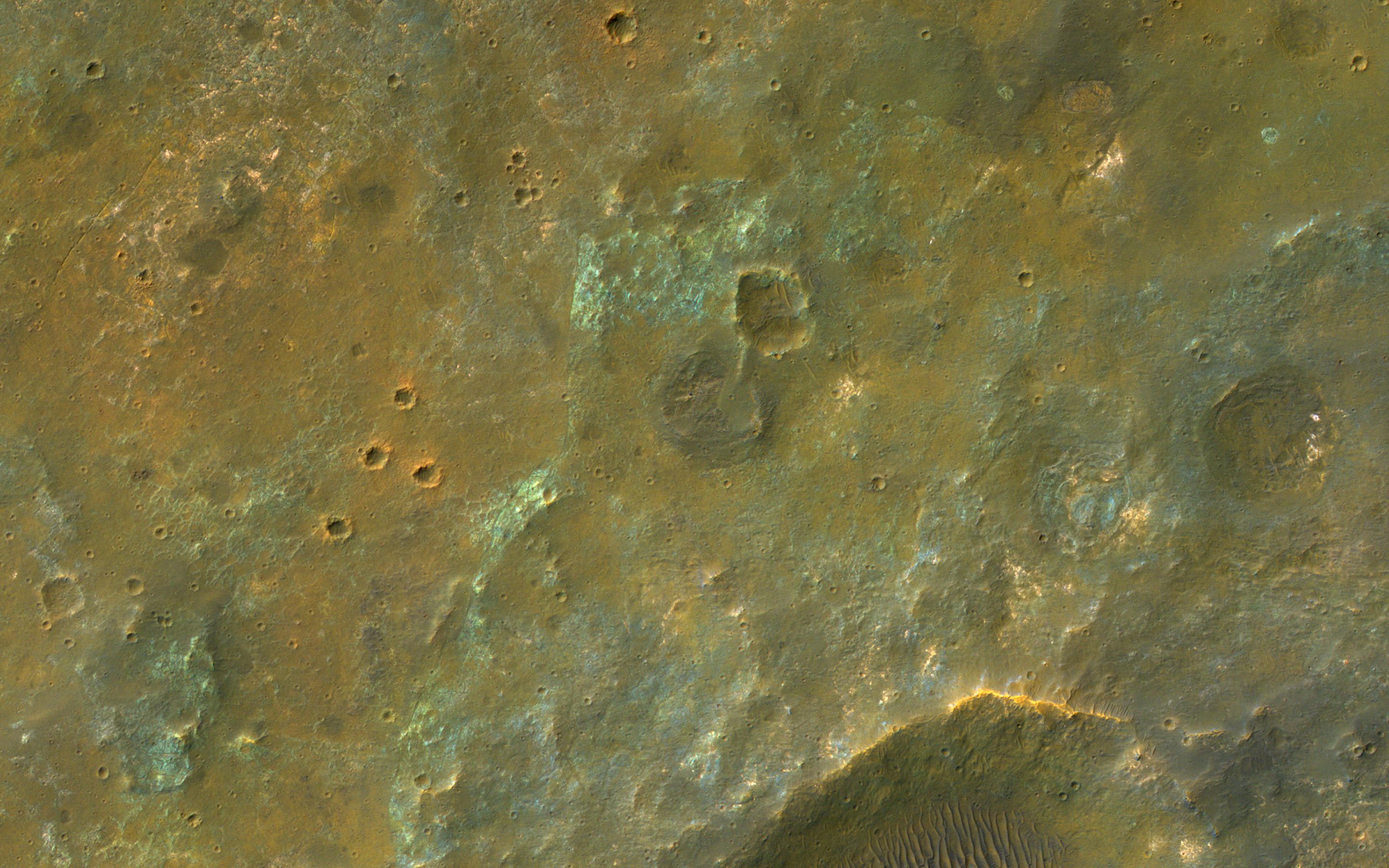
|
Colorful Plains South of Coprates Chasma
- Click the image above for a larger view
- Full-Res JPEG (2880 x 1800) (748.5 kB)
- Full-Res TIFF (2880 x 1800) (15.6 MB)
Caption:

Map Projected Browse Image
Click on image for larger version
This image covers the high plains about 25 kilometers (15 miles) south of Coprates Chasma, near the eastern end of the Valles Marineris canyon system. Here, the CRISM instrument on MRO has detected clay minerals, which imply substantial water-rock interactions in the past. These minerals often have a reddish- to yellow appearance in HiRISE images.
In this observation, the minerals appear concentrated along the boundaries of polygons up to 10 meters across. Perhaps the water-rock interactions at this site were most extensive within a network of pre-existing fractures dissecting the bedrock.
Rough, blue-to-purplish material appears to overlie the polygonal fractures in portions of the image. We also see lighter blue-to-green materials. While CRISM can provide a time constraint to the compositions of these varied materials, HiRISE shows us how they relate to each other and how such a colorful scene could have been assembled over geologic time.
The map is projected here at a scale of 50 centimeters (19.7 inches) per pixel. (The original image scale is 51.1 centimeters [20.1 inches] per pixel [with 2 x 2 binning]; objects on the order of 153 centimeters [60.2 inches] across are resolved.) North is up.
Background Info:
The University of Arizona, in Tucson, operates HiRISE, which was built by Ball Aerospace & Technologies Corp., in Boulder, Colorado. NASA's Jet Propulsion Laboratory, a division of Caltech in Pasadena, California, manages the Mars Reconnaissance Orbiter Project for NASA's Science Mission Directorate, Washington.
Cataloging Keywords:
| Name | Value | Additional Values |
|---|---|---|
| Target | Mars | |
| System | ||
| Target Type | Planet | |
| Mission | Mars Reconnaissance Orbiter (MRO) | Mariner |
| Instrument Host | Mars Reconnaissance Orbiter | |
| Host Type | Orbiter | Flyby Spacecraft |
| Instrument | High Resolution Imaging Science Experiment (HiRISE) | Compact Reconnaissance Imaging Spectrometer for Mars (CRISM) |
| Detector | ||
| Extra Keywords | Color, Map, Water | |
| Acquisition Date | ||
| Release Date | 2021-07-28 | |
| Date in Caption | ||
| Image Credit | NASA/JPL-Caltech/University of Arizona | |
| Source | photojournal.jpl.nasa.gov/catalog/PIA24700 | |
| Identifier | PIA24700 | |
